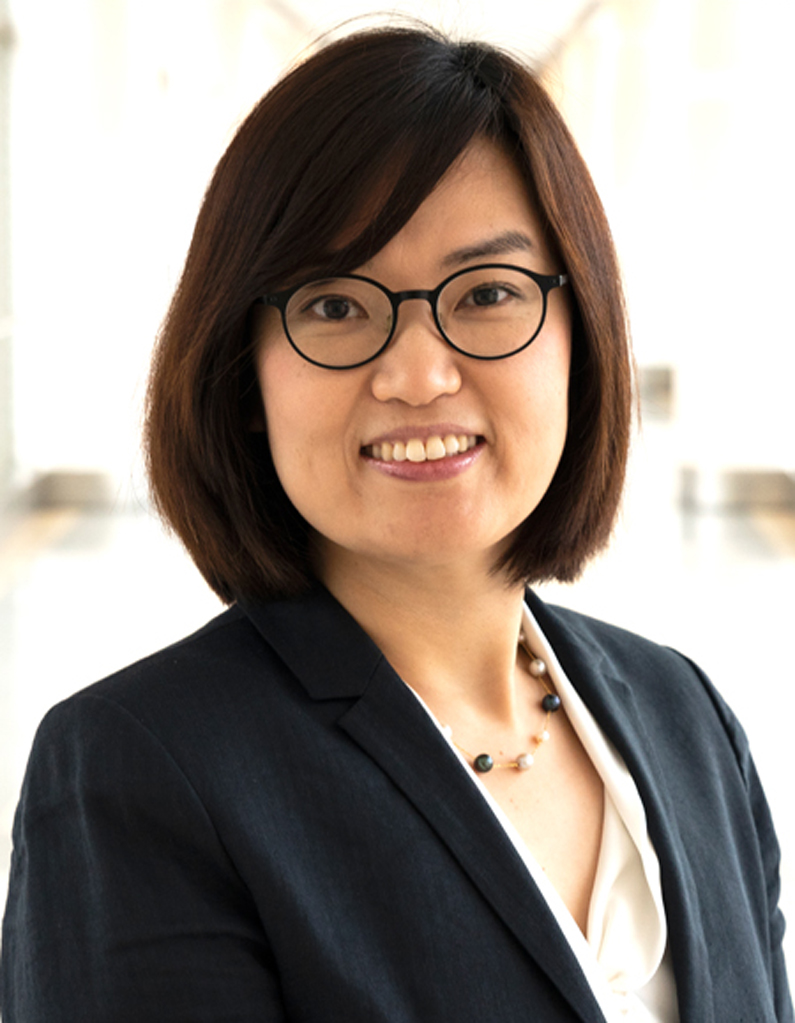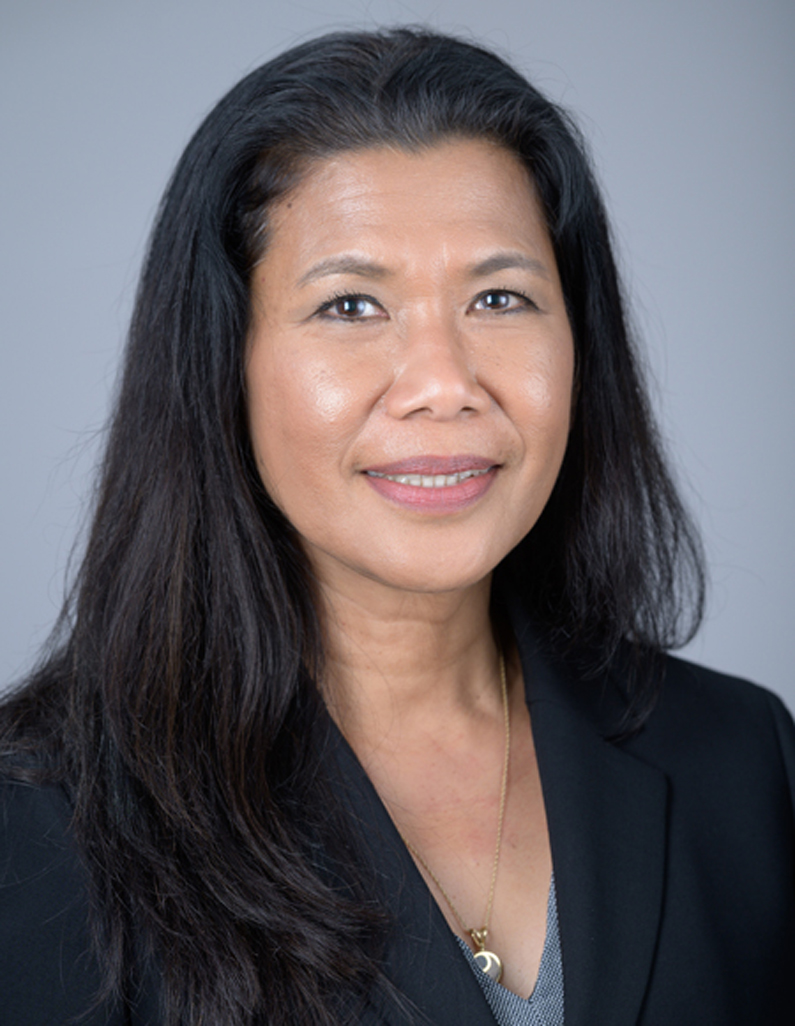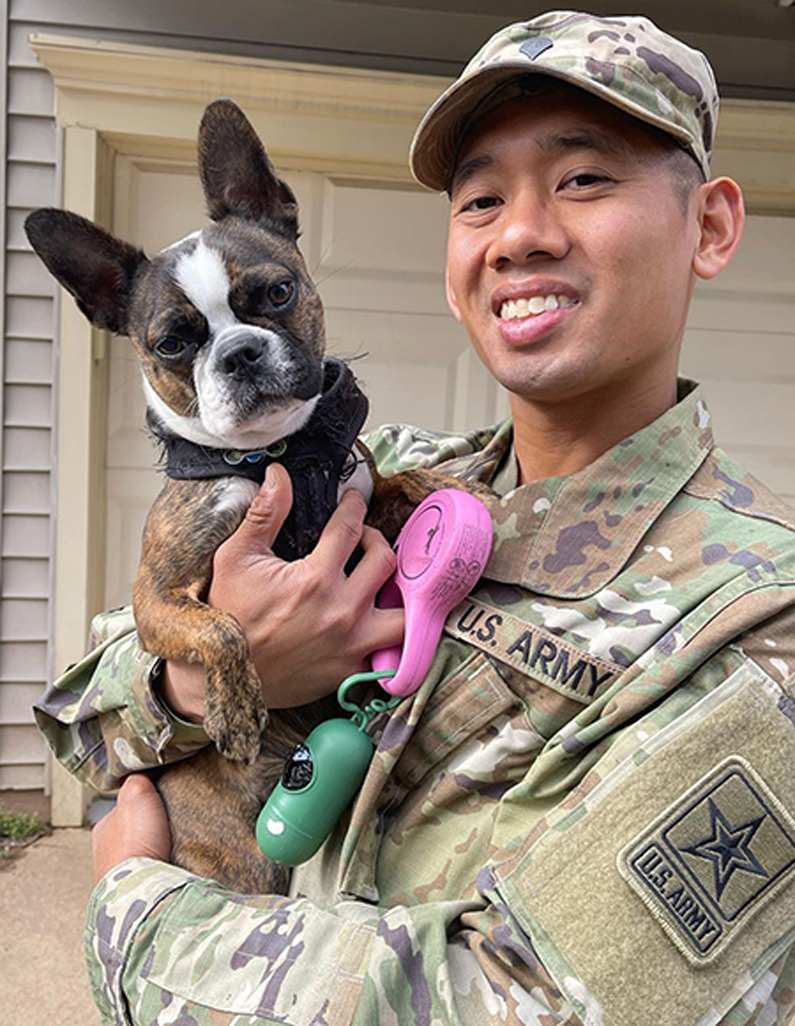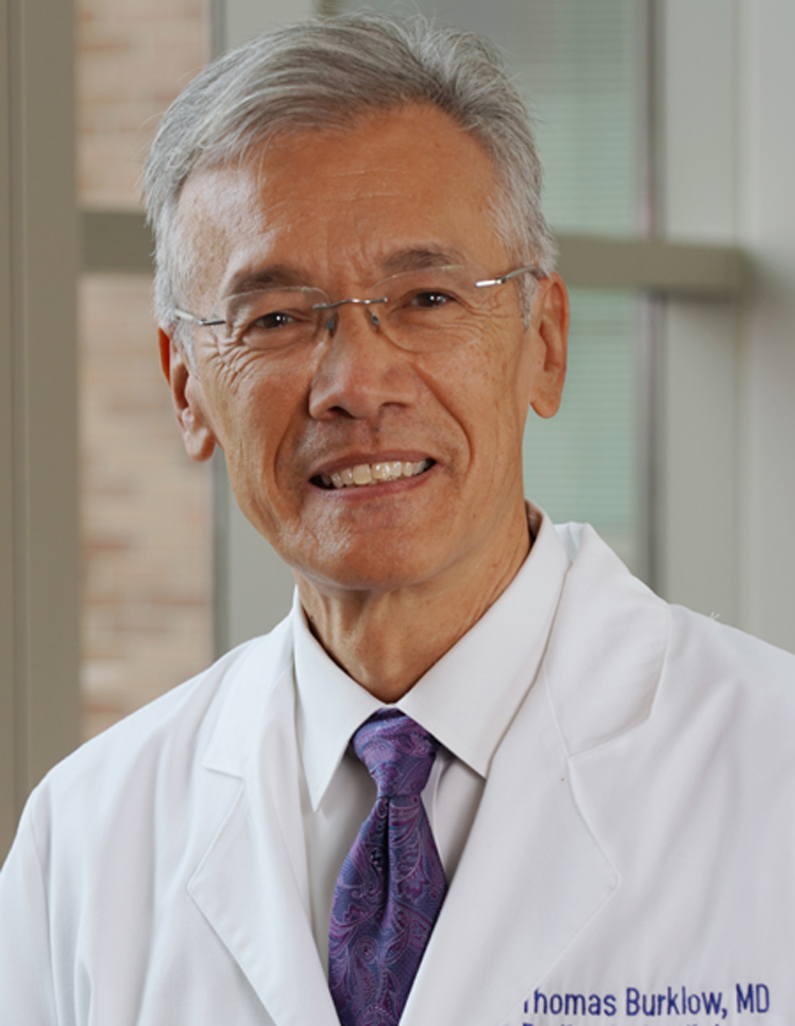One month, many stories
Clinical Center staff reflect on their heritage
Over the past twelve months, the rise in anti-Asian hate and xenophobia, combined with a global pandemic have made this Asian American, Native Hawaiian and Pacific Islander (AANHPI) Heritage Month more important than ever. This year's theme was "We are not a monolith" to highlight the diversity of languages, cultures and customs of many countries and regions among the AANHPI community.
The Asian American, Native Hawaiian and Pacific Islander population is diverse with 22.9 million Asians alone or in combination living in the United States as of 2019. As of 2021, the AANHPI population make up 19.4% of the NIH total workforce and 18% of the Clinical Center workforce (Staff only).
Members of the AANHPI community have contributed significantly to many facets of American culture and society, including literature, art, sports, recreation, government, politics, activism and law. Several CC staff members who are contributing to NIH's scientific and medical endeavors were interviewed to share their stories.

Dr. Esther Jeon is a Pharmacy project manager and process improvement officer for the Pharmacy Department in the NIH Clinical Center. She is currently managing the Permanent Pharmacy Placement Project, working with cross-functional teams for the successful move of the newly renovated pharmacy.
When Jeon thinks about her Korean heritage, food, family and culture come to mind. As a first-generation immigrant from South Korea, her daily life is surrounded by Korean culture. Her favorite home dishes are japchae (glass noodles), bibimbap (rice topped with sautéed vegetables, chili paste and beef or other meat) and tteokbokki (spicy rice cakes) and she enjoys watching Korean entertainment to wind down and escape after a busy day. When her parents come to visit every year from South Korea, they make Kimchi together, as per family tradition.
"As all generations gather around to make Kimchi (fermented cabbage) together, I am reminded of my roots and pride in my culture," said Jeon.
Jeon believes building social relationships in the Asian American community is vital to her identity. Sharing information and supporting others who are experiencing similar circumstances can help navigate her path.
"For example, I participate in the activities of the NIH chapter of Korean American Women in Science and Engineering. We exchange the personal, academic and work-life among members to strengthen the network."
Jeon reflected on how violence toward the Asian American community has shaped her.
"Consciously or unconsciously, I believe that all Asian American communities have felt the impact of the violence and hate-filled actions toward Asian Americans. I have unconscious anxiety that the acts of violence and harassment could happen to me, my family and my friends. It is heartbreaking and troubling to hear the news of violence perpetrated against Asian Americans."
On the other hand, she's found a little bit of light at the end of the tunnel when she sees the immense support for the Asian American community.
"This kind of attention to celebrate and recognize the community and emphasis on the value of America whose foundation and principles were built by immigrants from around the world is meaningful."
Jeon hopes that one day we can acknowledge that we are all different and there is nothing wrong with that.
"I am blessed to live and work in a multi-cultural community, including a sizeable group of Asian Americans, where diversity and inclusion are valued."

Annie Cichocki is the Chief of the Clinical Center's Nutrition Department. She manages a full range of both clinical and research services, including the daily operations of the metabolic kitchen and the NIH Dietetic Internship Program, in addition to ongoing food service delivery and managing quality assurance and performance improvement programs.
When Cichocki thinks about AANHPI month, her traditions, family and history stand out. Cichocki was born on the island of Mindanao in the southern Philippines and identifies as an Asian Pacific Islander from Southeast Asia.
One of her most important traditions growing up was family mealtime.
"My siblings and I knew what time we needed to be at home for family mealtimes…. We try to make time in the family's busy schedule to have a sit-down meal with everyone, even if it's just once a week," said Cichocki.
"To celebrate and honor AANHPI cultures across the U.S. is to advocate for Asian and Pacific Islander equity and safety. This month is an opportunity to amplify our voices and our concerns as well as share our cultural pride [and] can also be used as a vehicle to create spaces for AANHPI individuals to feel seen, heard and valued. A place where they can thrive and continue being their best, authentic selves at work," added Cichocki.
While growing up, Cichocki was taught to bear with injustice and to work harder than her non-Asian peers to prove her worth and that she belonged. She believes this is partly due to her upbringing. She was raised to prioritize hard work rather than speaking up to be recognized or promoted.
"It's particularly harder for me as a female immigrant. I feel that I always must prove myself above my peers. Asian Americans are perceived as smart, hardworking, easy-to-manage employees. The problem with that perception is that we're seen as good workers, but not great leaders."
To better understand AANHPI experiences in the U.S., Cichocki recommends reading Pan de Sal Saves the Day by Norma Olizon-Chikiamco and Mark Salvatus – a book about a Filipino girl who learns to appreciate her own unique gifts in a story about building self-confidence.

Mike Delostrinos is a Management Analyst working in the Office of Hospital Administrative Support. He currently works directly with the hospital's employees helping them navigate the ITAS (Integrated Time and Attendance System) timekeeping system and leave sharing programs such as Voluntary Leave Transfer Program and Leave Bank.
Delostrinos identifies as a Filipino American and celebrating his Filipino heritage consists of food and quality family time.
"My family is very traditional where we celebrate a lot of the religious celebrations together. We tend to focus a lot on family and strive to have meals together at least once a week," he said.
Delostrinos viewed this month as an opportunity gain understanding, learn about different cultures and values and to respect the different activities people embrace.
"My heritage has shaped me by being family and service oriented, where putting others before yourself is essential. We take this month to acknowledge some of the accomplishments that others have done or simply educate yourself on some of the cultural aspects."
One of Delostrinos' mentors who guided him at the Clinical Center was his late colleague, Robert Arcilla.
"He [Arcilla] helped me understand a lot of what I do by focusing on customer service but also balancing out my mental health and teaching me firsthand that you can't help others without taking care of yourself," said Delostrinos.

Dr. Thomas Burklow is the acting director of the Clinical Center's Office of Clinical Research Training and Medical Education. He also serves as the director for the Medical Research Scholars program and coordinator for undergraduate medical student electives at the hospital. Burklow also chairs the Clinical Center's simulation training project team.
Burklow grew up in a mixed raced culture, as he was born in South Korea to a Korean mother and a Caucasian father. His family roots in Kentucky go back several generations and he remembers a lack of diversity in some communities in America.
"Growing up in America, there were very, very few Asians in my own community. Consequently, I was raised culturally 'white'," said Burklow.
However, over time and as an adult, he realized how his deeply ingrained values and belief systems came from his mother and how they were shaped by her Korean heritage.
"I now have a greater identity with and appreciation for my Korean roots, and understand better why I hold harmony, family, tradition and fortitude as being essential in life. But at the same time, I firmly embrace uniquely American values of independence, equality and optimism. It is a cliché, but America really is a melting pot and we become a better country when we can show appreciation for, and even integration of, the values that everyone brings to the table."
The U.S. has celebrated Asian/Pacific American Heritage Week since 1979 until the recognition was expanded to a month in 1990 and May was officially designated as Asian/Pacific American Heritage Month in 1992. The month of May was chosen to commemorate the immigration of the first Japanese person to the United States on May 7, 1843, and to mark the anniversary of the completion of the transcontinental railroad on May 10, 1869. The majority of the workers who laid the tracks were Chinese immigrants. For more information visit https://asianpacificheritage.gov/ or https://intranet.cc.nih.gov/deia/AANHPImonth (Staff only)
- Janice Duran